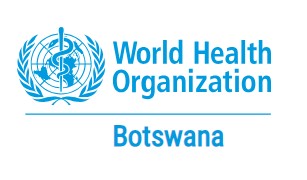Botswana Launches National Training Initiative to Tackle Cervical Cancer
The Ministry of Health in Botswana has launched a national training programme aimed at strengthening the clinical capacity of healthcare professionals in the early detection and treatment of pre-cancerous cervical lesions. The two-week initiative, supported by the World Health Organization (WHO) and other development partners, targets both doctors and nurses across key districts, including Good Hope, Mochudi, and Palapye.
The training focused on equipping six doctors and a team of nurses with advanced clinical skills, particularly for managing cases that extend beyond basic procedures such as thermal ablation and cryotherapy. According to Ms Thomamo Pheto, National Coordinator for the Cervical Cancer Prevention Programme, the effort seeks to bridge the gap in skilled personnel in many parts of the country.
“Our goal is to ensure that both doctors and nurses are adequately trained to identify and manage cervical pre-cancer,” said Ms Pheto. “Many districts in Botswana still lack skilled personnel, and this training is designed to close that gap.”
Since the inception of Botswana’s cervical cancer prevention programme in 2015, more than 283 healthcare workers have been trained with support from WHO and other partners. The initiative has not only increased interest in women’s health among healthcare workers but also strengthened district-level capacity.
Despite improved services, cervical cancer screening rates in Botswana remain low. Ms Pheto attributes this to the asymptomatic nature of pre-cancerous conditions. “When you have a pre-cancer, you don’t feel sick. There’s no pain, no discharge, so many women assume they’re fine,” she said, noting that this leads to a false sense of security and delayed screenings.
She emphasized the need to reach women who have never been screened, especially those aged 25 and above, whose health status is largely unknown and may already be at risk. “Cervical cancer is a silent killer. By the time symptoms appear, it may already be too late. But with early detection, it is both preventable and treatable,” she said.
Dr Tebogo Madidimalo, WHO Botswana’s focal point for Noncommunicable Diseases (NCDs), reaffirmed the country’s commitment to eliminating cervical cancer by 2030. “We all, particularly us healthcare workers, have a responsibility to ensure that women coming through our facilities are offered cervical cancer screening and timely follow-up care,” he said.
Dr Madidimalo praised Botswana’s track record in tackling public health challenges and expressed optimism that cervical cancer elimination is achievable. “We have proven before that elimination of communicable diseases is possible in Botswana, and likewise, elimination of cervical cancer is within reach for us. It will, however, take all hands-on deck to achieve the WHO targets.”
The Ministry of Health, with continued support from WHO and other stakeholders, aims to expand community outreach and further scale up training and prevention efforts.
“With the right skills, tools, and community support, we can save lives and move closer to eliminating cervical cancer as a public health threat in Botswana,” concluded Ms Pheto.



